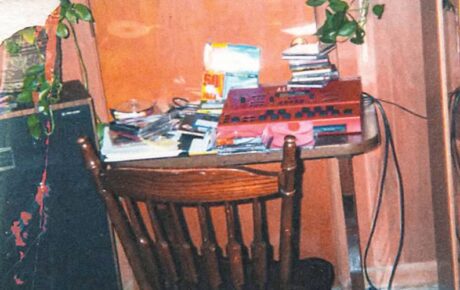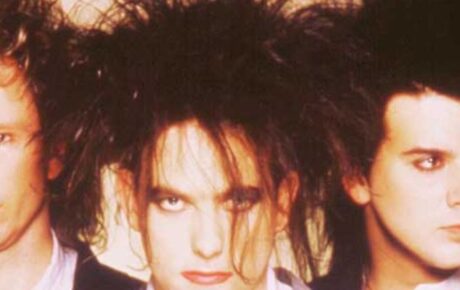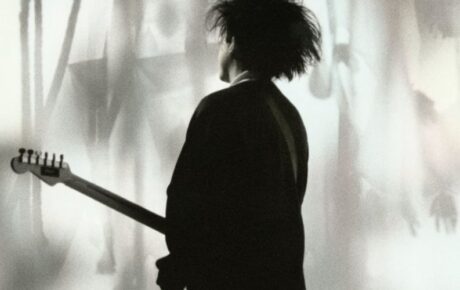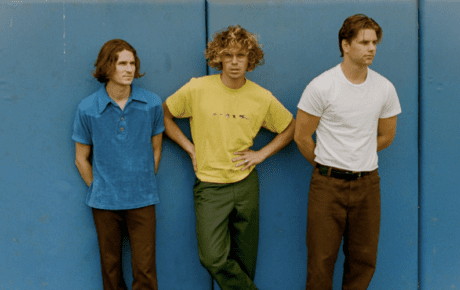Our own Lorde has made a long-anticipated return with her striking fourth studio album Virgin. Visceral and euphoric, laid bare and incredibly rich – Virgin is a flagship produced in collaboration with Jim-E Stack. Describing this body of work as “feral, wild, and physical,” Lorde delivers revolutionary takes in unassuming packages that register as rugged and resounding plain truths. Speaking direct and raw, Lorde has crafted another totem to herald the experiences of those navigating the world alongside her.
Virgin opens with ‘Hammer’, orienting us with instrumental feedback that sets a tone of intensity and joyous disorientation that drives this record. A magician, Lorde turns wisdom into dance, and calls upon ancient symbols of knowledge through lyrical references to the moon, making wishes, crystals, and aura readings. ‘Hammer’ aptly strikes hard to reveal the essence of the album, embracing possibility through a pulsing perspective. Amidst an aural scape akin to a busy city street, Lorde speaks direct to listeners in the closing verse: ‘It’s a f*cked up world / been to hell and back / but I’ll send you a postcard from the edge.’
She sends the first souvenir in the form of leading single ‘What Was That’, a rumination that combs through years of youthful devotion with candid confusion accepted as verdict: ‘since I was seventeen / I gave you everything’. If Hammer was rooting us in the present, this is our first taste of retrospection that seeks a reconciliation, solo. ‘What Was That’ has a piercingly convicted honesty that reaches new heights in its momentous euphoria, and cracks the blinds on the mundanities of suffering that feels eternal, until your seventeen is over.
‘Shapeshifter’ opens with a pacy garage beat that is immediately cast against a vocal delivery that is eponymously colder and more direct than the previous custom of this record. As the melody warms post-chorus, there’s a guise of vulnerability: ‘I’ve been the siren / been the saint / I’ve been the fruit that leaves a stain.’ Admittance to a variety of perspective and experience is puppeteered masterfully as emotional availability – an act undercut by the confession that ‘tonight I just wanna fall.’ ‘Shapeshifter’ descends from Solar Power’s ‘Secrets of a Girl (Who’s Seen It All)’. Both tracks understand identity as something that muddles and churns as time goes on – a truth that’s weaponised here to justify protective tendencies of dissociation. The chorus rings like a cantation as the bridge reaches a climax in the battle between desire and logic – heralded by an incredible swell of string orchestra and vocals against a rising of the track’s techy heartbeat.
In the wake, we’re reeled in to the independent bassline that welcomes the introduction of the ‘Man of The Year’. The song is epitomised by the double entendre of now being ‘broken / open’ as Lorde continues to question where love may pour into our raw cavities of truth. Primal percussion unveils gender fluidity as rugged, with an authenticity that rewards by polishing legacy into gold chains and faces in the light. Here, Lorde and Jim-E demonstrate once again sonically that their strength is chaos and crescendo – the pressure valve that pumps through the heart of Virgin.
‘Favourite Daughter’ wrestles with the enormity of an ultimate love letter to her mother. Lorde falsifies her own ego and desire in conveying the sheer endgame pursuit of parental pride. In declaring that people ‘are convinced I’m not just some kid fakin’ it for your love’, Lorde renders any other driving force as fraudulent and superficial. Synth-rich, this track has an electric pep. It’s an aural tap dance inflated by a breathy vocal desperation to exhibit the endless pursuit of attention that attempts to do justice to the devotion and deservedness of one’s mother. ‘I keep dancing till I get sick / why’d you have to dream so big?’ Lorde’s lyrical wisdom on this track is an earnest victory lap and is, aptly, generational. ‘Favourite Daughter’ is a fresh antique.
Lorde anchors us in the fresh earth of ‘Current Affairs’. Disguised and denounced as mundane, this one is a candid and raw bodily mourning: ‘he spit in my mouth like he’s saying a prayer,’ ‘you tasted my underwear / I knew we were f*cked.’ Lorde commands another sonic revolut on this project, including the sample of Dexta Daps’ ‘Morning Love’ to lend a distorted duet – one that crescendos to a hanging acapella comparable to the vocal peter of ‘Liability’s final ‘disappear into the sun’. ‘Current Affairs’ is masterful, an aural equivalent to spinning in a hall of mirrors, only to discover there’s nobody there except you.
‘Clearblue’ strikes as a standout synth confessional with an immediate and intimate frankness, ‘after the ecstasy, testing for pregnancy, praying in MP3.’ Isolated vocals grow in intensity, punctuated by leering silences that imbue Ella’s thoughts with an air of holy verse that teeters between determination and uncertainty. ‘Clearblue’s ultrasound reveals vertebrae of Virgin’s spine in each lyric: ‘‘I’ll try letting the answer be part of the dances, I trip and I stumble’.
View this post on Instagram
‘GRWM’ – a shorthand for ‘grown woman’, is an exploration of the contradictions that are intrinsic to femininity through the specificities of Lorde’s physicality: ‘wide hips / tooth chipped’, and ‘skin scarred’. This track is sonically self-assured, building from soft keys to an enriched electric scape underscored with a glimmering synth. Thematically, it plays upon the ritual of a traditional ‘get ready with me’ through a gendered lens, but also a temporal lens that pays homage to childhood identity and expectation. Particularly, one rooted in fixations with discovering the self to achieve the status of a grown up. It’s a record that’s trademark Lorde – saturated with the warmth of Solar Power, the storytelling of Melodrama, and the vocals of Pure Heroine.
‘Broken Glass’ meets us in front of the mirror and extends a familiar hand to the regime of body dysmorphia and restriction. Scored by metronome, a constant pelt at metal that wears like physical labour and arithmetic of hyperfixation on oneself. Lorde challenges the stakes of actively battling the illusions we’ve conditioned to hold power, when ‘it might be months of bad luck / but what if it’s just broken glass?’ ‘Broken Glass’ is raw and ugly in its cathartic validation. It’s a tangible disruption that is going to mean a lot, to a lot of people. After all, ‘you won’t outrun her if you don’t hit back.’
‘If She Could See Me Now’ hits the ground running in the city – a charged and familiar scene in Lorde’s discographic world. Musically, this piece moves in fresh and unpredictable ways. Baby Bash’s 2003 ‘Suga Suga’ gets direct interpolation in the opening verse, the keys are punchy, the pace threatens to both hit the brakes while also cruising along the coast. It’s sentimental and free, tying together threads of identity facets that have frayed, been secured, and emerged through the course of Virgin. ‘I bring the pain out the synthesiser / the bodies move like there’s spirits inside ‘em.’ It’s Lorde in her namesake – playing god in her own narrative.
‘David’ is slow, special and important. Virgin thus far has made a playground of Lorde’s identity in pillars of family, childhood, gender, sex, wellbeing, magic. Despite the unknowns, this project is rich with expression and conviction. In its final moments, it turns to face the freshest wounds, and wonder about their expiry. It’s dripping in somber vulnerability and finds its strength in resigning to the infallibilities of connection. Lorde describes the musical storm’s “machine-made climax” as an immortalisation of human emotion that collapses into a mortality. Or perhaps, an x-ray.












